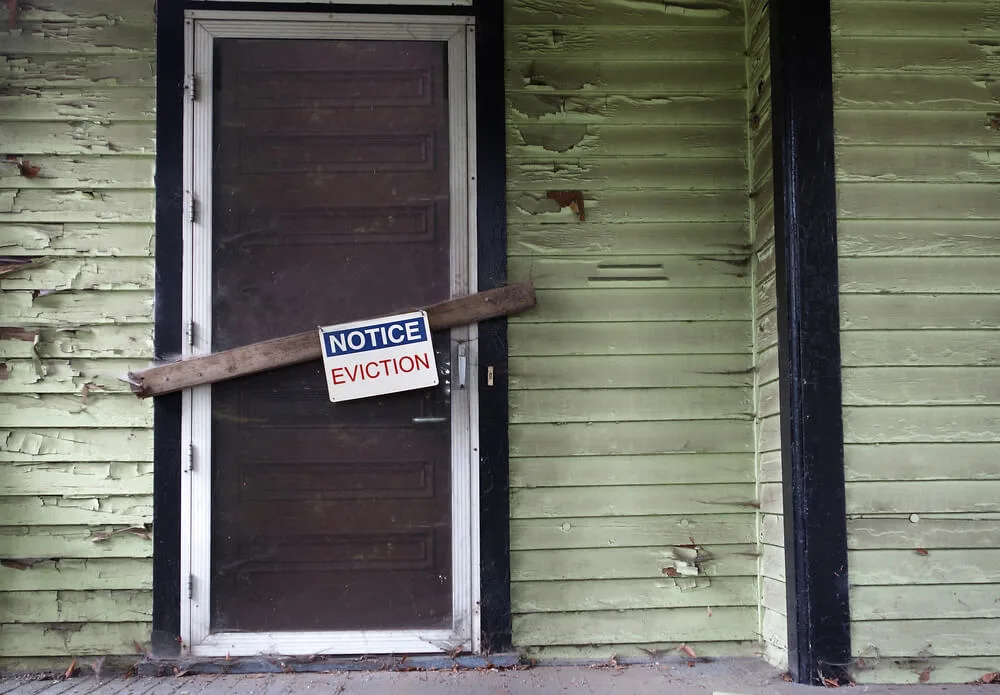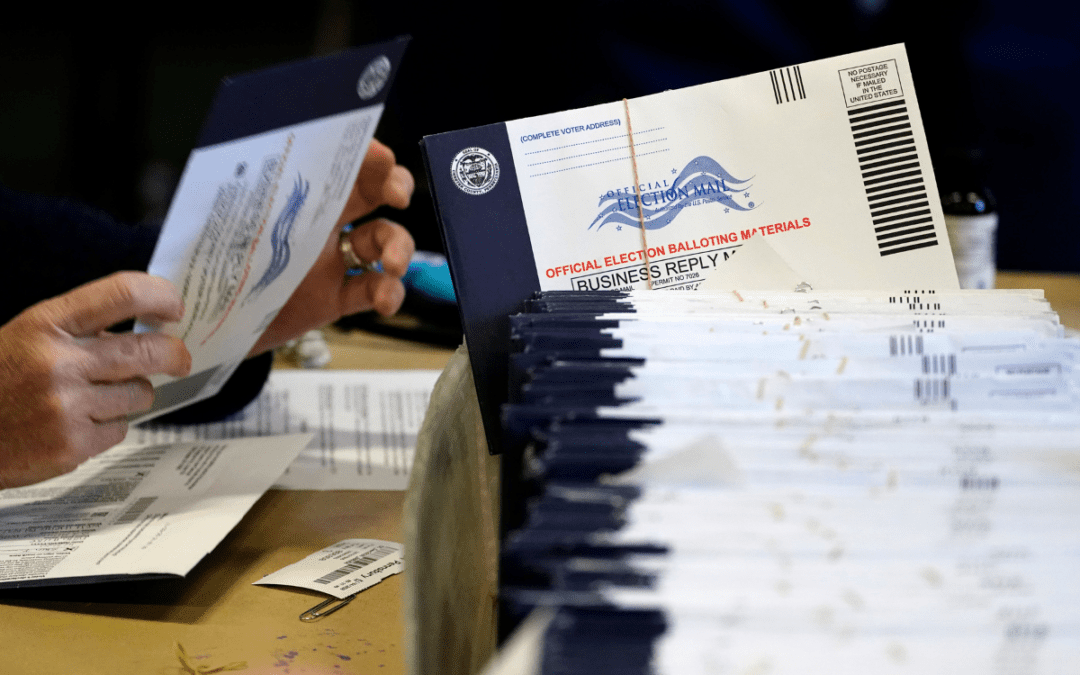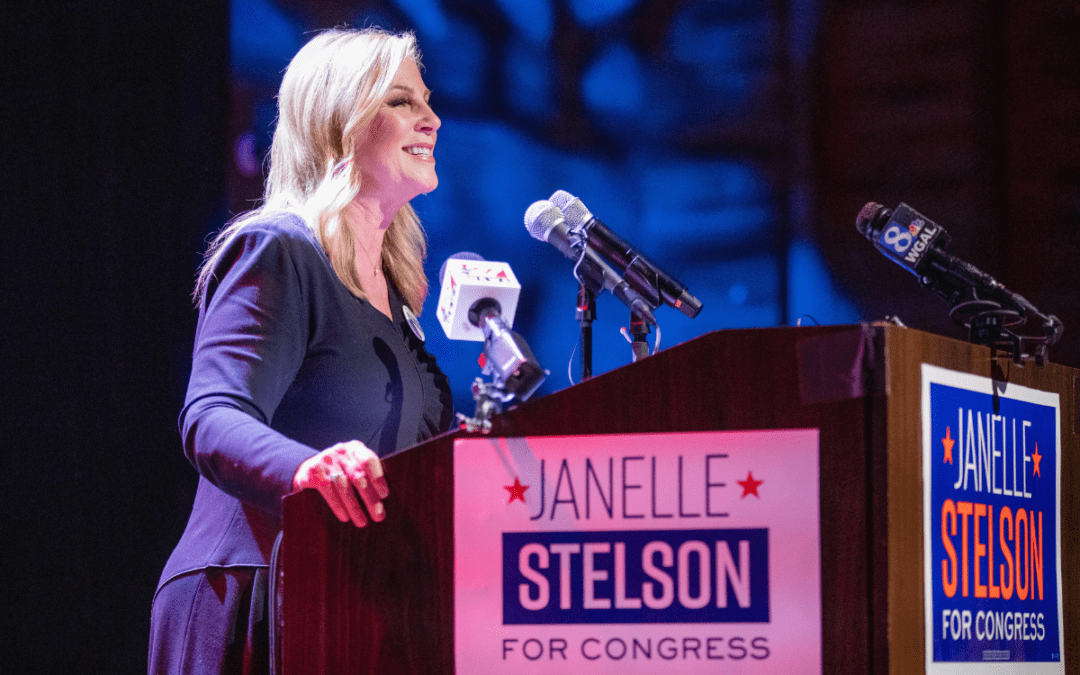
Image via Shutterstock
Gov. Tom Wolf called on lawmakers in the Republican-led state House and Senate to pass a law extending the moratorium, which expires on Aug. 31.
Pennsylvania residents will once again be vulnerable to losing their homes starting Sept. 1, after Gov. Tom Wolf announced Tuesday that he no longer has the legal authority to extend the state’s moratorium on evictions and foreclosures.
The end of the freeze could spell disaster for hundreds of thousands of Pennsylvanians who’ve struggled or been unable to pay rent and mortgages during the pandemic.
In a letter to the General Assembly, Wolf called on lawmakers in the Republican-led state House and Senate to pass a law extending the moratorium, which has been in place for more than five months.
“Upon the expiration of the moratorium at the end of the month, notices of eviction and foreclosure will again be able to be sent. This begins a process that takes time, but that ultimately concludes with our fellow Pennsylvanians being removed from their homes,” Wolf wrote. “I urge the General Assembly to act immediately to prevent evictions and foreclosures by passing legislation to temporarily extend the existing moratorium.”
The moratorium, first issued in March by the state Supreme Court, was initially scheduled to expire in May, but Wolf used executive orders to extend it through July 9 and then again through Aug. 31.
RELATED: This Group Thinks All Pennsylvanians Deserve $15 Wage, Paid Leave, and Eviction Protections
Senate Majority Leader Jake Corman (R-Centre), told the Associated Press that Republicans are open to passing legislation, but criticized Wolf for “ruling by executive order” and waiting until the moratorium was days away from expiring before approaching lawmakers.
While Wolf’s announcement may have caught Corman off guard, the Republican-controlled legislature has had months to take permanent action to protect renters and homeowners and failed to do so.
Democratic lawmakers previously supported a longer extension of the moratorium and remain committed to extending the moratorium, according to Sen. Minority Leader Jay Costa (D-Allegheny).
“Our caucus has supported a moratorium that goes through the duration of the disaster declaration; no one should worry about losing the roof over their head as they work to keep themselves and families healthy through a pandemic,” Costa told the Pennsylvania Capital-Star.
House lawmakers are expected to discuss the issue when they return to session next week, a Republican Party spokesperson told the AP.
What This Means for Pennsylvania Renters
As Wolf noted in his letter, the state’s Emergency Services Code allowed him to halt eviction proceedings for only a limited period of time. If state lawmakers fail to pass meaningful protections for renters and homeowners, the state could face a tsunami of evictions.
Pennsylvania’s economy has been hammered by the coronavirus pandemic and now has the fifth-highest unemployment rate in the country at 13.7%.
There are an estimated 3.5 million renters in Pennsylvania, according to Princeton University’s Eviction Lab, and the National Low Income Housing Coalition estimates that between 25-39% of them are at risk of being evicted.
RELATED: It’s Nearly Impossible for Pennsylvania Minimum Wage Workers to Afford Rent
Housing advocates say they’re already preparing for a wave of eviction proceedings to begin next week.
“We’ve been getting phone calls already with landlords sending their tenants notices that they’re behind on their rent, and they need to collect their rent and they’re planning on filing for eviction sometime soon,” Vik Patel, a housing attorney at Community Legal Services of Philadelphia, told the AP.
While the ultimate fix will only come with legislative action, there are some state resources available to Pennsylvanians who are at risk of losing their homes:
$150 Million Rental Relief Program
Pennsylvania is using $150 million of its federal coronavirus relief funds to provide rental assistance.
The CARES Rent Relief Program is open to renters with incomes up to their area median income and who have lost their jobs, or saw a 30% or more reduction in annual household income due to the pandemic. Renters who qualify are eligible to receive aid equal to 100% of their monthly rent up to $750 a month for a maximum of six months between March 1 and November 30. Relief is only available for future payments, however, and not past months.
The program has run into some speed bumps, though. Some Pennsylvanians have been able to take advantage of the program, but it has not worked as intended, Wolf wrote in his letter to lawmakers. Applying for assistance requires both renter and landlord involvement, and Wolf said that landlords have been hesitant to participate because of the $750-per-month cap on payments.
As of Aug. 14, the program had received more than 14,000 applications, requesting about $38 million in aid, but only $465,000 had been distributed to 866 renters and 195 landlords, according to the Pennsylvania Housing Finance Agency, which is administering the program.
Wolf urged lawmakers to raise the cap and ease other requirements in the program to encourage further participation. “Without these urgently needed changes, payment assistance is not reaching residents who badly need it and these funds will ultimately be returned to the federal government at the end of the year,” he wrote in his letter. Wolf also wants to add another $100 million to the rental relief program as part of his fall legislative agenda.
Interested renters can learn more about how to apply for the program here. The program is accepting applications until Sept. 30.
$25 Million Mortgage Assistance Program
Pennsylvania is also using $25 million in federal funds to provide relief to mortgage holders who have struggled to make payments and risk being foreclosed on.
In order for homeowners to qualify, they must have become unemployed after March 1 or experienced a 30% or greater reduction in their annual household income due to the pandemic. Eligible homeowners can receive up to $1,000 a month in assistance for up to six months, ending November 30.
So far, only about 1,600 homeowners have applied for assistance through the program, according to the PHFA. The agency is currently processing those requests.
Interested homeowners can learn more about how to apply for the program here. The program is accepting applications until Sept. 30.
Local Relief Programs
Individual cities like Philadelphia and Pittsburgh also have assistance programs, and some local community development organizations have also provided aid to struggling renters.
The Associated Press contributed to this story.
Politics

Bob Casey warns about Supreme Court’s attacks on workers and unions
US Sen. Bob Casey is warning Pennsylvania voters that the US Supreme Court is coming for the right to organize. Corporate greed and workers’ rights...

Community pushback gets school board to rescind decision on denying gay actor’s visit
Cumberland Valley School Board offered a public apology and voted to reinstate Maulik Pancholy as a guest speaker a week after the board voted to...

Pennsylvania redesigned its mail-in ballot envelopes amid litigation. Some voters still tripped up
HARRISBURG, Pa. (AP) — A form Pennsylvania voters must complete on the outside of mail-in ballot return envelopes has been redesigned, but that did...
Local News

What do you know about Wawa? 7 fun facts about Pennsylvania’s beloved convenience store
Wawa has 60 years of Pennsylvania roots, and today the commonwealth’s largest private company has more than 1,000 locations along the east coast....

Conjoined twins from Berks County die at age 62
Conjoined twins Lori and George Schappell, who pursued separate careers, interests and relationships during lives that defied medical expectations,...






